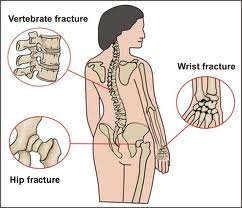Food as Medicine—Is Salt Helpful or Not?
The cold and dryness of winter can chill the body and de-stabilize the nervous system of some people. Salt regulates the fluid balance of the body, maintains acid/base level, provides for nerve conduction and blood pressure. In Ayurveda it is understood that salt is more grounding and helpful in the winter than at any other time. Does this mean salt is always good for us?
Salt purchased at the grocery store or on restaurant tables is not just salt. The chemicals added to it can include synthetic sodium aluminosilicate, iodide, sodium bicarbonate, fluoride, anti-caking agents, potassium iodide, aluminum derivatives, white sugar, and monosodium-glutamate. Natural salt is not usually white. Table salt is white because it has been bleached. So where does this salt come from? Much of it is made from the flaky residue of oil drilling. Crude oil is one substancey table salt is refined from.
When this kind of table salt is eaten regularly, the excess sodium outside of cells osmotically pulls out the water with potassium, calcium and magnesium from the cell. This can cause a severe state of cellular dehydration that cannot be slaked by drinking water. In my practice I have seen many people with cancer whose potassium levels are depleted, sometimes by eating too many salty foods.
Winter is called Vata Season in Ayurveda. Salt has been a staple in the diet of humans for at least 6000 years. The salt that we seem to be genetically dependent on is raw, unrefined salt. Unrefined salt was a primary delivery food for essential and trace minerals in the body — which play a lead role in almost every bodily function. In Ayurveda there are some formulas, such as the tonic, Chyvanprash, that use salt in this way.
Unrefined mineral salts, such as Celtic Sea Salt, Utah’s Redmond Salt and Pink Himalayan Salt, provide the body with up to 80 essential and trace minerals. Refined white table salt is devoid of these essential minerals and provides only sodium to the body, which can disturb the body’s electrolyte balance.
Electrolytes are minerals in your blood and other body fluids that carry an electric charge. Electrolytes affect the amount of water in your body, the acidity of your blood (pH), your muscle function, and other important processes. The most common electrolytes are calcium, chloride, magnesium, phosphorous, potassium and sodium.
Sodium concentrates in the fluid around the cells. Potassium concentrates inside of the cell helping it to hold water. There is a delicate balance between the two. I have found that in people with cancer this balance is usually disturbed and there is not enough potassium in the diet.
People with high blood pressure are usually told to stop eating salt. Using too much table salt causes us to retain waters and other fluids. Chronic imbalances such as diabetes, gout and obesity can be worsened or even partially caused by excessive intake of salt.
In terms of the three doshas, or constitutional tendencies, salt is best suited to the vata or air-type person (who tends to be cold, dry, thin). Salt will help stimulate the digestive secretions, retain moisture and help ground a person who is too flighty.
Ayurveda warns against the excessive use of any kind of salt as it can “provoke pitta,” which causes too much heat or inflammation in the body, thirst, loose teeth, decreases fertility, impairs the function of sense organs, contributes to premature wrinkles, grey hair and baldness. It can also cause blood and skin disorders, acidity, gout, baldness and other problems. For Kapha-type constitutions too much salt can lead to excessive water retention, bloating and puffiness and more serious problems.
Therefore, unrefined salt in moderation is good for Vata people, Pitta people need very little salt and Kapha people should eat no salt. You can find out what your constitution is from any Ayurvedic physician or online from the Market page of my website “Determination of Ayurvedic Constitution.”
Here is some salty wisdom for the cold months.
“The fact that salt is a powerful emetic as well as a potent laxative should convince the most skeptical that it is not meant to form an important part of the human diet.”
― John H. Tobe
“My love is like a slug. Don’t you go pouring salt on it.”
― Jarod Kintz
“Nobody likes having salt rubbed into their wounds, even if it is the salt of the earth.”
― Rebecca West
“The laboratory evidence that carbohydrate-rich diets can cause the body to retain water and so raise blood pressure, just as salt consumption is supposed to do, dates back well over a century”
― Gary Taubes, Good Calories, Bad Calories
“Like some winter animal, the moon licks the salt of your hand,
Yet still your hair foams violet as a lilac tree
From which a small wood-owl calls.”
― Johannes Bobrowski

 RSS Feed
RSS Feed
